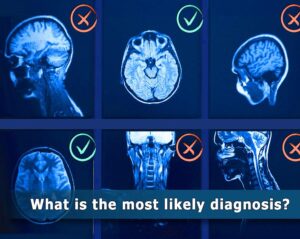One of the world’s leading Alzheimer’s prevention studies, the international DIAN-TU has been advancing the evaluation of experimental drugs in people living with dominantly inherited Alzheimer’s disease (DIAD), a rare genetically determined form of Alzheimer’s, since 2012. Most people with DIAD, which accounts for less than 1% of Alzheimer’s cases, have onset of memory and thinking symptoms within a few years of the age their parents’ decline started — often in their mid-30s, 40s or 50s. Although the DIAN-TU trials focus on people with rare mutations, treatments that are successful in this population could potentially be used to prevent or slow the forms of Alzheimer’s that occur more commonly in older adults.
In late 2023, DIAN-TU leaders at Washington University School of Medicine in St. Louis announced plans to launch a new trial to explore the effects of amyloid plaque removal in this unique patient population. This month, study leaders announced the anti-amyloid drug that will be studied in this trial is LEQEMBI® (lecanemab-irmb), provided by Eisai Inc.
“The Alzheimer’s Association is proud of our continuing support of DIAN-TU, now totaling nearly $50 million over 12 years,” said Maria C. Carrillo, Ph.D., Alzheimer’s Association chief science officer and medical affairs lead. “These genuinely innovative studies in this special Alzheimer’s patient population have the potential to significantly impact the future of Alzheimer’s treatment and prevention.”
The DIAN-TU-003 ART is an open label study to treat DIAD mutation carrier participants from the DIAN-TU-001 Open Label Extension (OLE) with LEQEMBI for a minimum of five years. Study participants were previously on the experimental anti-amyloid therapy gantenerumab during the DIAN-TU-001 OLE, which is no longer being studied in DIAN. Approved by the FDA in 2023, LEQEMBI is the first and only traditionally approved treatment for patients with mild cognitive impairment or mild dementia stage of Alzheimer’s disease.
“This study is designed to determine if the removal of amyloid can delay the onset of dementia in people who are otherwise destined to get Alzheimer’s disease,” said Randall J. Bateman, M.D., director of the DIAN-TU. “These participants were previously treated for up to 10 years. The findings showed large amounts of amyloid pathology were removed and participants without symptoms may have delay in the onset of memory loss and cognitive decline. Because these people have been treated the longest with amyloid removing drugs in the world, we want to determine the long-term effects of amyloid removal on disease progression in DIAD. These results could provide the first proof that removing amyloid years before symptom onset could delay or even prevent symptom onset by years.”
The objectives of the 5-year DIAN-TU-003 ART are to determine:
- If amyloid plaque can be fully removed from the brain in DIAD.
- The effects of amyloid removal on age of onset and clinical progression.
- The effects of amyloid removal on biomarkers of disease progression.
“The DIAN Trials Unit has contributed key insights for Alzheimer’s prevention over the past decade,” said Fred Miller, COO and managing director, Alzheimer’s disease at GHR Foundation. “The DIAN-OLE-ART study will provide critical new information about how to deliver prevention therapy through its long-term work with these dedicated families. We at GHR are pleased to partner boldly with Washington University and the Alzheimer’s Association on the DIAN-TU trials to support this strong collaboration between academic researchers, government, industry, philanthropy and the DIAN families themselves.”
“The Amyloid Removal Trial will stretch the boundaries of our knowledge about what we can accomplish through removing amyloid from the brain,” said Carrillo. “The hope is that, as a result of this visionary research, we get actionable insights into delaying or even preventing memory and thinking decline in people with Alzheimer’s. Supporting the DIAN families, in whom entire generations are often devastated by Alzheimer’s, and providing them with hope based on personal engagement and scientific evidence is a high priority for the Alzheimer’s Association.”
DIAN-TU-003 ART is expected to begin in summer 2024.
About the Alzheimer’s Association
The Alzheimer’s Association is a worldwide voluntary health organization dedicated to Alzheimer’s care, support and research. Our mission is to lead the way to end Alzheimer’s and all other dementia — by accelerating global research, driving risk reduction and early detection, and maximizing quality care and support. Our vision is a world without Alzheimer’s and all other dementia®. Visit alz.org or call 800.272.3900.













Post Comment